WFP calls for $500,000 to boost flood response in Pakistan
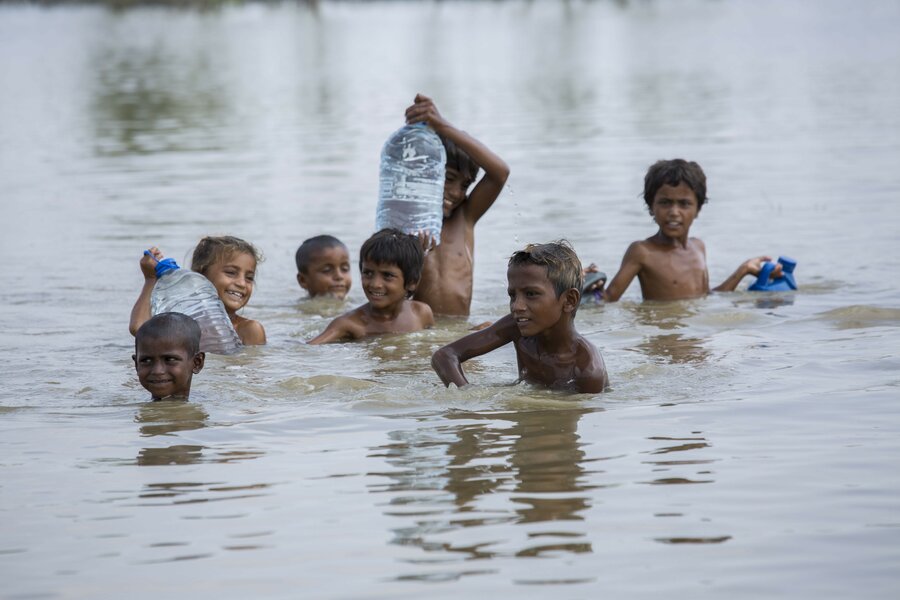
On 13 September, near the city of Badin, I entered one of Pakistan's worst flood-affected areas. For several kilometres and pretty much as far as the eye could see, there were temporary camps for flood-affected, dispossessed communities — families living in hastily erected shelters on the roadside.
With 136 people reported dead, thousands have been displaced in this year's monsoon season, which has been exacerbated by climate change. The World Food Programme (WFP) has reached 11,000 families with emergency food assistance and is calling for US$500,000 to increase its reach, particularly in the Sindh region — up to 300,000 people are in need of food assistance.
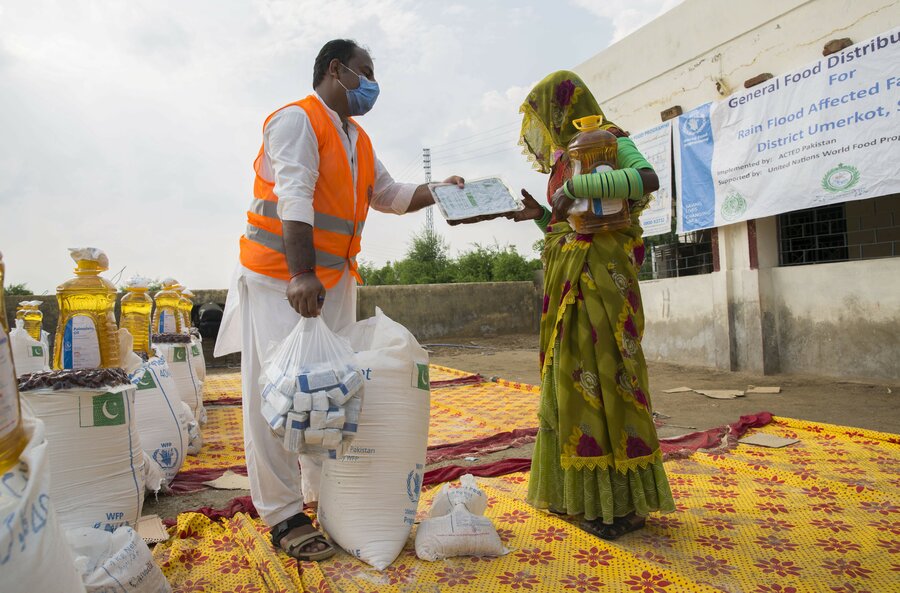
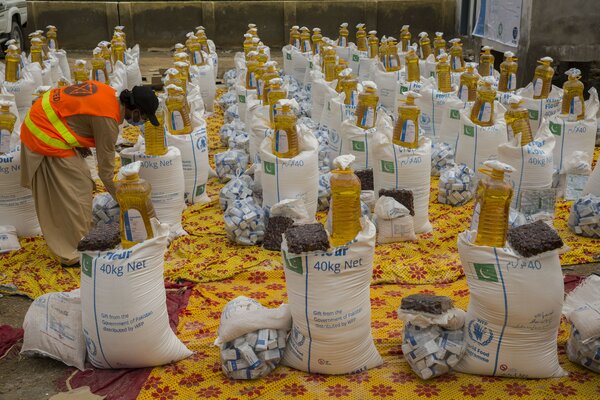
Communities face serious health risks living in appalling conditions. Flies and mosquitos are everywhere. Getting by is a daily struggle. People walk long distances in search of fresh water — the alternative is to drink from the dirty water along the roadside that children play in. Many do just that.
Women bathe their children in the same water they wash clothes in. Limited supplies of clean water are strictly rationed. Many farmers lost their cattle in the floods. Some built makeshift shelters for their animals and shared whatever clean water they could spare with them.

To access some towns and villages, such as the ones in Mirpurkhas district, we had to travel by motorboat. Villagers told us that they hadn't seen any outsiders ever since the floods devastated their homes and that all their crops were now gone and possessions lost; no more houses, and nothing to eat.
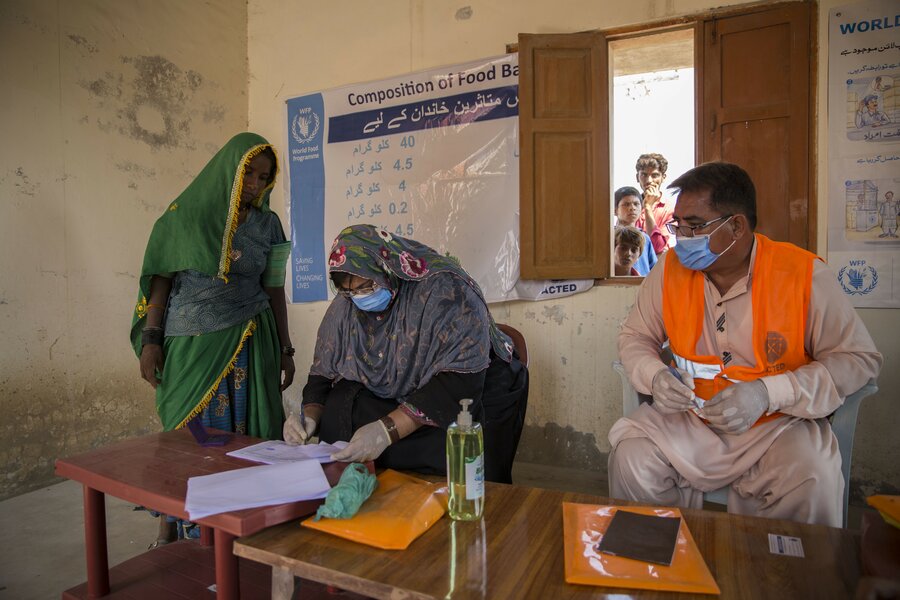
If they are left alone to fend for themselves, these communities may not able to make it. Their mud houses and fragile livelihoods as subsistence farmers cannot withstand such an onslaught.
Working closely with the National Disaster Management Authority and Provincial Disaster Management Authority in Sindh, WFP has provided food rations — flour, pulses, cooking oil and nutritious biscuits for children to prevent malnutrition setting in.
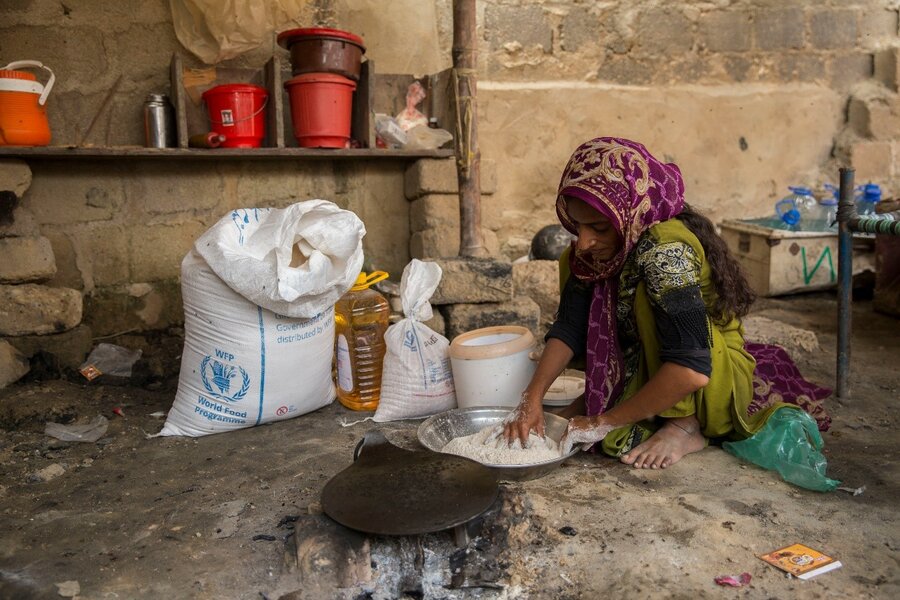
At a distribution site, in Umerkot, one villager asked, "What will happen when this runs out? And how can we rebuild our homes?"
All along the main road of the city of Badin are kilometres and kilometres of hastily erected shelters, with dispossessed families seeking refuge, not knowing when they may be able to have a proper dwelling for themselves to move into.
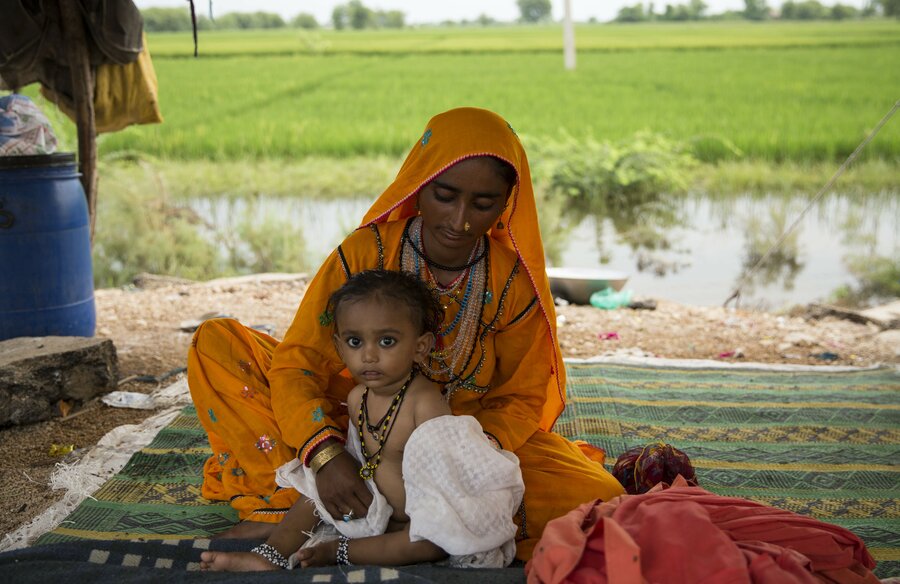
The devastation is equally visible in an urban slum that we visited in the city of Karachi. Amid damaged houses and roads, children were running around barefoot; mothers with babies navigated puddles of floodwater and sewage.
The effects of climate change are being increasingly felt in Sindh, and they are taking a particularly heavy toll on these communities of subsistence farmers, nomadic tribes, as well as on those living in urban slums. Urgent assistance is required now.
Saiyna Bashir is a freelance journalist. Versions of this article have appeared in Pakistan's Dawn newspaper, The Independent and the Daily Telegraph.
